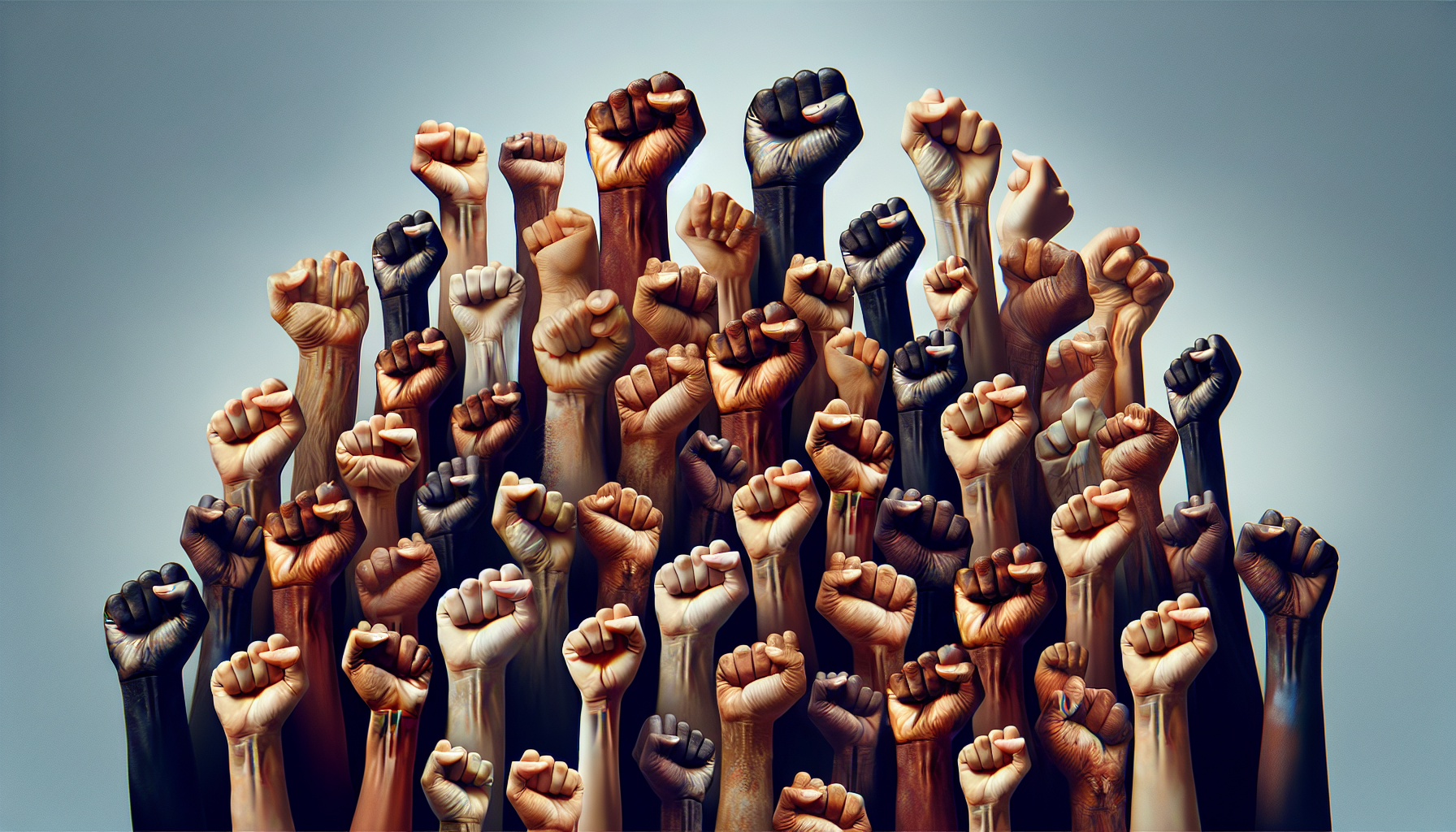The Hidden Skills Supply Chain Managers Need in 2025

The supply chain disruptions of recent years have been a wake-up call for industries worldwide. From the COVID-19 pandemic to geopolitical tensions, natural disasters, and cyberattacks, it’s clear that crises are no longer rare anomalies—they are becoming the norm. In response, supply chain managers must master the art of crisis management to keep businesses running smoothly. Crisis management requires a blend of analytical skills, emotional intelligence, and proactive planning. For example, during the global semiconductor shortage, companies with resilient supply chains fared better because their leaders had prepared contingency plans, identified alternative suppliers, and communicated transparently with stakeholders. To thrive in a crisis, supply chain managers must remain calm under pressure, inspire confidence in their teams, and make swift, informed decisions. The ability to prioritize effectively and implement solutions quickly can mean the difference between a business surviving or faltering during a disruption. Professionals can develop crisis management skills by undergoing risk assessment and scenario planning training. Participating in crisis simulations and learning from smaller disruptions can also prepare individuals for larger-scale emergencies.
Cross-Cultural Communication: Building Bridges in a Globalized World
Globalization has made supply chains more interconnected than ever, with suppliers, manufacturers, and logistics providers often spanning multiple countries. While this interconnectedness offers opportunities, it also presents challenges—particularly when it comes to communication across cultures. Cross-cultural communication is vital for supply chain managers, who must navigate differences in language, customs, and business practices to foster strong partnerships and avoid costly misunderstandings. For instance, working with a supplier in Japan may require an emphasis on harmony and consensus, while negotiating with a partner in Germany may call for a more direct and efficiency-focused approach. The ability to adapt communication styles and demonstrate cultural sensitivity can significantly improve relationships and outcomes. Managers who excel in cross-cultural communication are better equipped to resolve conflicts, build trust, and drive collaboration across borders. Immersion is key to developing cross-cultural communication skills. Professionals can benefit from language learning, cultural training, or even firsthand experiences through travel or international assignments. Additionally, tools like cultural intelligence (CQ) assessments can help identify areas for growth.
Sustainability Planning: Balancing Profit with Planet
Sustainability is no longer a “nice-to-have” feature; it is a necessity for businesses navigating a world of heightened environmental awareness. Consumers, regulators, and investors alike are demanding greater accountability from companies, making sustainability planning a critical skill for supply chain managers. As stewards of their companies’ supply chains, managers are tasked with reducing carbon footprints, minimizing waste, and ensuring ethical sourcing practices. This requires expertise in areas such as lifecycle assessments, circular economy principles, and regulatory compliance. Patagonia, a leader in sustainable business practices, provides a powerful example of what is possible when sustainability is prioritized. The company sources recycled materials, ensures fair labor conditions, and has built a brand that resonates with environmentally conscious consumers. Their efforts prove that sustainability and profitability can go hand-in-hand. Supply chain professionals can enhance their credentials in this area by pursuing certifications such as the Certified Green Supply Chain Professional (CGSCP). Staying informed about regulatory changes, such as carbon border adjustment mechanisms, is also essential.
Data Storytelling: Turning Insights into Action
The supply chain industry has embraced big data and advanced analytics, with AI playing a pivotal role in demand forecasting, inventory management, and more. However, data alone cannot drive decisions—managers must be able to interpret and communicate insights effectively. Data storytelling is an increasingly valuable skill that combines technical data analysis with clear, compelling communication. For example, instead of simply presenting a dashboard of declining delivery rates, a skilled supply chain manager might explain the root cause (e.g., supplier delays due to extreme weather), propose solutions (e.g., sourcing locally or diversifying suppliers), and highlight the potential business impact. This ability is particularly important when engaging with non-technical stakeholders, such as executives or clients, who rely on managers to translate complex analytics into actionable strategies. Building proficiency in tools like Tableau or Power BI can enhance data visualization skills, while workshops on effective communication can help professionals craft more compelling narratives.
Emotional Intelligence: Leading with Empathy
As supply chains grow more complex and teams become more diverse, the human element of supply chain management is becoming increasingly important. Emotional intelligence (EI)—the ability to understand and manage your own emotions while empathizing with others—is a crucial skill for effective leadership. Supply chain managers often have to lead diverse teams, mediate conflicts, and manage high-pressure situations. Leaders with high EI can build trust, foster collaboration, and maintain morale, even in challenging circumstances. For instance, during the early days of the COVID-19 pandemic, companies with empathetic leaders who prioritized employee well-being reported higher engagement and loyalty. Emotional intelligence also plays a key role in handling negotiations, resolving disputes, and guiding organizational change. Developing emotional intelligence begins with self-awareness. Professionals can seek feedback from colleagues, participate in leadership coaching, or attend workshops focused on empathy and interpersonal skills.
The future of supply chain management is one of constant evolution. As the industry grows more complex, so too must its leaders. The hidden skills outlined above—crisis management, cross-cultural communication, sustainability planning, data storytelling, and emotional intelligence—are no longer optional. They are essential tools for navigating the challenges and seizing the opportunities of 2025 and beyond. For job seekers, mastering these skills can provide a competitive edge in a rapidly changing job market. For companies, investing in leaders who possess these abilities can drive resilience, innovation, and lasting success. The supply chain managers of the future are those who can adapt to change, think strategically, and lead with empathy in an increasingly complex global landscape. The time to develop these hidden skills is now. Are you ready to rise to the challenge?
Supply Chain Risk Manager
Global manufacturers (e.g., General Electric, Siemens), logistics companies (e.g., DHL, FedEx), or tech firms (e.g., Apple)
Responsibilities & Skills
Develop and implement risk assessment frameworks to identify vulnerabilities in global supply chains.
Design crisis response strategies, including contingency plans for supplier disruptions, natural disasters, and geopolitical events.
Use predictive analytics and scenario planning tools to anticipate and mitigate risks.
Collaborate with cross-functional teams to ensure business continuity during crises.
Unique Qualifications
Expertise in risk management software, familiarity with ISO 31000 standards, and strong leadership skills to guide teams during high-pressure situations.
Global Supplier Relationship Manager
Multinational corporations (e.g., Procter & Gamble, Toyota), or fashion retailers (e.g., Zara, Nike)
Responsibilities & Skills
Build and maintain relationships with international suppliers, ensuring alignment on quality, cost, and delivery expectations.
Navigate cultural and linguistic differences to foster trust and effective communication across borders.
Negotiate contracts and resolve disputes while considering regional business practices and legal compliance.
Monitor supplier performance using KPIs and drive continuous improvement initiatives.
Unique Qualifications
High cultural intelligence (CQ), proficiency in multiple languages, and experience in managing supplier audits or ethical sourcing programs.
Sustainability and ESG Supply Chain Specialist
Apparel companies (e.g., Patagonia, H&M), consumer goods brands (e.g., Unilever, Nestlé), or consulting firms (e.g., McKinsey)
Responsibilities & Skills
Design sustainable supply chain strategies aligned with Environmental, Social, and Governance (ESG) goals.
Conduct lifecycle assessments, carbon footprint analyses, and waste reduction initiatives.
Ensure compliance with environmental regulations and ethical sourcing standards.
Collaborate with stakeholders to integrate circular economy principles into supply chain operations.
Unique Qualifications
Certifications such as LEED, CGSCP, or ISO 14001, along with expertise in environmental impact reporting tools.
Supply Chain Data Analyst
E-commerce giants (e.g., Amazon, Alibaba), logistics firms (e.g., UPS, Maersk), or aerospace companies (e.g., Boeing)
Responsibilities & Skills
Use big data platforms and analytics tools (e.g., Tableau, Power BI, Python) to identify trends and inefficiencies in supply chain operations.
Develop data visualization dashboards to communicate actionable insights to stakeholders.
Support decision-making processes by analyzing demand forecasts, inventory levels, and supplier performance metrics.
Collaborate with IT and business units to implement predictive analytics and AI-driven solutions.
Unique Qualifications
Strong skills in data storytelling, programming languages (e.g., SQL, R), and a background in supply chain modeling or optimization.
Supply Chain Change Management Consultant
Management consulting firms (e.g., Deloitte, Accenture), tech companies (e.g., Microsoft), or Fortune 500 companies undergoing supply chain transformation
Responsibilities & Skills
Lead transformation projects to modernize supply chain operations, often focusing on digitalization, AI integration, or sustainability.
Guide organizations through process changes, addressing employee resistance and aligning stakeholders on strategic goals.
Develop training programs and resources to upskill teams in new technologies or methodologies.
Use emotional intelligence to foster collaboration and inspire confidence during periods of uncertainty.
Unique Qualifications
Certifications in change management (e.g., Prosci) or project management (e.g., PMP) and experience in leading global change initiatives involving diverse teams.


